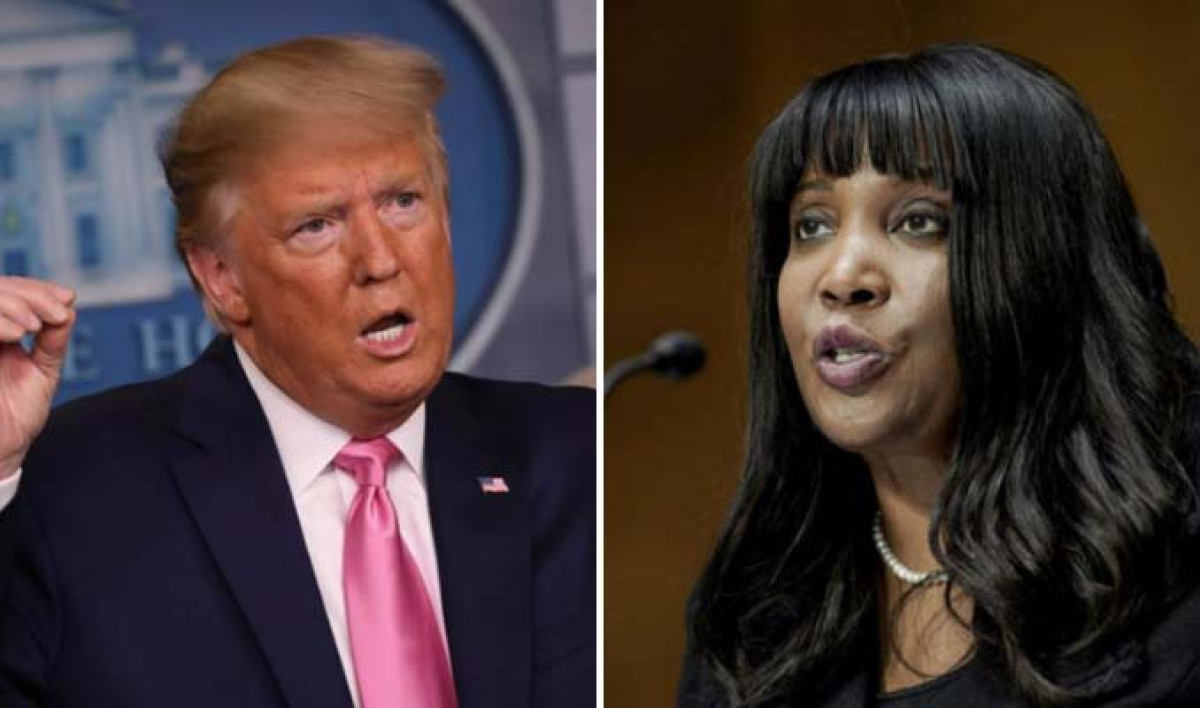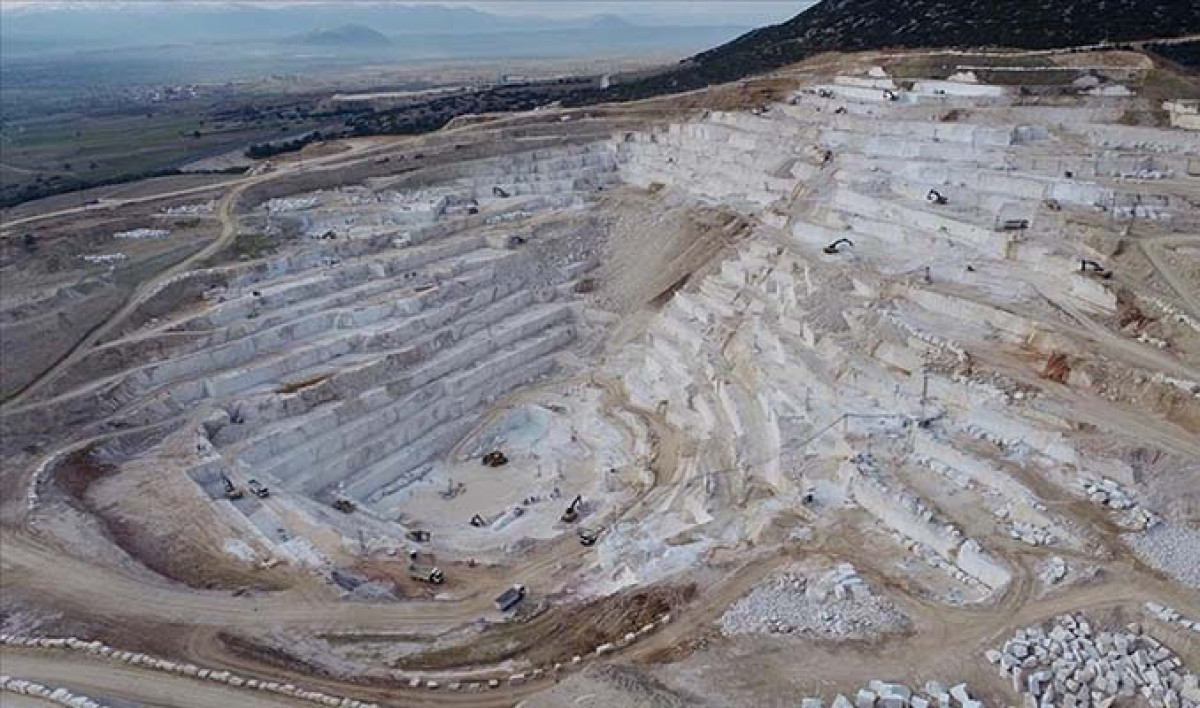Trump's intervention in the Fed: Independence is at stake
US President Donald Trump's unprecedented move to increase control over the country's central bank, the Federal Reserve (Fed), has caused a major shock wave in the markets. Trump has announced that he will remove Fed Board member Lisa Cook from office, citing allegations of irregularities in mortgage lending transactions. This decision further heightened concerns about the Fed's independence and global confidence in US assets, creating a significant climate of uncertainty in already sensitive financial markets.
Shock accusation against Governor Lisa Cook
Lisa Cook, targeted by President Trump, was of historic significance as she became the first African-American woman to serve on the Fed's governing body. In his official letter to Cook, Trump cited the listing of both properties as primary residences where he planned to live in 2021, in documents for separate mortgage loans taken for properties in Michigan and Georgia as “reason enough to dismiss it from your post.” This claim suggests that primary residential loans carry the potential for financial misconduct because they often have lower interest rates than investment real estate loans.
The move is being interpreted as an indication of Trump's desire to rapidly increase his influence over the Fed and the key Federal Open Market Committee (FOMC), which sets interest rates. If Cook is impeached, the process of reshaping the president's monetary policy structure in line with his political and economic goals could gain momentum. This undermines the central bank's principle of being free from political interference, raising serious questions about the objectivity and effectiveness of future monetary policy decisions.
Lisa Cook's Legal Challenge and Legal Framework
Hard Response From Lawyer: No Legal Basis
Following the charges, Lisa Cook quickly issued a response through her attorney Abbe Lowell. The statement emailed to reporters through Lowell's law office made it clear that “there is no case under the law” against Trump and that Trump did not have the authority to impeach Cook, who was appointed by former President Joe Biden in 2022. Cook reiterated his determination to continue his mission to help the American economy, stressing that Trump's demands “lack any proper process, basis or legal authority.” “We will take whatever steps are necessary to prevent this type of legal action,” his lawyer signaled the legal fight. This statement suggests that the incident has not only a political, but also a serious legal dimension and may be the beginning of a protracted litigation process.
The Federal Reserve Act and the “Just Cause” Debate
The terms of office of Fed governors are structured long-term to exceed the term of office of a particular president, that is, to ensure independence from political changes. As a matter of fact, Lisa Cook's tenure would last until 2038. But the Federal Reserve Act contains a clause that allows an incumbent governor to be impeached “with just cause.” Whether Trump's claims fall under this definition of “just cause” will be one of the main topics of debate in the legal process ahead. This brings into question the interpretation of the US Constitution's principle of “the President's authority to hold officers in office only for the duration of good conduct” on the Federal Reserve system.
The information that Cook received when he was an academic before he was appointed to the Fed in 2021 was also reflected in the public domain of the mortgages in question. Moreover, it was recalled that these mortgage transactions took place before his appointment to the Fed and were in the public record at the time Cook was reviewed and approved by the Senate. This creates the perception that the claims are not a new discovery, but an already known situation. In the official financial statement form for 2024, three mortgages in Cook's hands are listed, and two of them are indicated as personal housing. Primary home loans can have more attractive interest rates than investment real estate mortgages because they are generally considered lower risk by banks. This raises speculation about how strong the motivation behind the claims is.
Trump's statement that the layoffs are “effective immediately” and the Fed's 16-17 September Due to the fact that an important policy meeting is expected to be held on their dates, there is great uncertainty as to how the issue will proceed from now on. This legal and political wrangling could cast a shadow over the Fed's near-term monetary policy decisions and could be a new source of instability for markets.
Earthquakes in Global Markets: Far-reaching Impacts
Unexpected Ripple in the US Bond Market
This drastic move by Trump was met with a marked obliquity in the yield curve of U.S. Treasury bonds. More sensitive to short-term Fed policy expectations Yields on 2-year Treasury bonds rapidly decline 3 basis points to 3.7%, which is sensitive to long-term inflation risks Yields on 10-year Treasury bonds rose 1.8 basis points to 4,293%. In the meantime, The yield on the 30-year bond rose 3.2 basis points to 4.921%. This market reaction suggests that investors, on the one hand, are pricing in the expectation that the Fed may cut its policy rate, while on the other hand it carries concern that such intervention could mean compromising the Fed's resolve to curb inflation. This divergence in the bond market reflects the tension between near-term liquidity expectations and the perception of long-term macroeconomic stability.
Asian Stock Exchanges and Global Distrust
One of the first reactions to the news was seen in Asian markets. Asian bourses followed Wall Street's declines, with Trump blurring the outlook for Fed policy and raising uncertainty over expectations for a rate cut next month. This has led to an overall decline in global risk appetite and a shift of capital to safer havens. U.S. stock futures also fell as Trump renewed his tariff threats against trading partners, adding to pressure on the global economic outlook. Such political interventions undermine investor confidence, triggering volatility and exposing the fragility of the global financial system.
Volatility in Gold and Oil Markets
In the turbulent atmosphere of the markets, traditional safe harbor assets stood out. Gold prices rose to a two-week high as the dollar depreciated after US President Donald Trump announced he would dismiss Fed Governor Lisa Cook. Spot gold, 11 AugustAfter reaching the highest level since 0.2% increase to $3,371 per ounce ascended. The perception that Trump is shifting the Fed to a more moderate structure, potentially leading to looser monetary policies, has increased the allure of gold, causing the dollar to depreciate or yields to fall. Concerns of deviation from the Fed's commitment to fighting inflation also supported gold's rise, as gold is also seen as a hedge against inflation. The world's largest gold-backed exchange-traded fund SPDR Gold TrustThe amount of gold you had yesterday on Friday up 0.18% from 956.77 tonnes to 958.49 tonnes announced that it came out, which indicates that the demand for gold from institutional investors is growing.
Oil prices have taken a complicated course. Initially caused by concerns about supply cuts as Ukraine hits Russian energy infrastructure and traders expect more US sanctions on Russian oil 2% There has been an increase. But then it went into decline in the morning hours. Investors continue to closely monitor the possible impact of the Russia-Ukraine dispute on fuel supplies from the region. Brent crude futures fell 0.23% to $68.64 a barrel, while WTI crude futures also traded down 0.25% at $64.64. This fluctuation highlights the immediate and dynamic impact of geopolitical risks on energy markets.
In summary, this latest intervention by Donald Trump towards the Fed raises a number of important problems and uncertainties, having a wide resonance not only in US domestic politics, but also in global financial markets. This threat to the Fed's independence will increase investors' perception of risk, while its effects on the future of monetary policy and global economic stability will continue to be closely watched.
⚖️ Yasal Uyarı:Bu içerik yatırım tavsiyesi niteliği taşımaz. Yatırımlarınızla ilgili kararlarınızı kendi araştırmalarınız ve risk profilinize göre almanız önerilir.
Fed, Donald Trump, Lisa Cook, Impeachment, Central Bank, Market Reaction, Bond Market, Gold Prices, Dollar, Monetary Policy, US Economy, Inflation, Interest Rates, FOMC, Financial Markets, Global Economy




















.png)